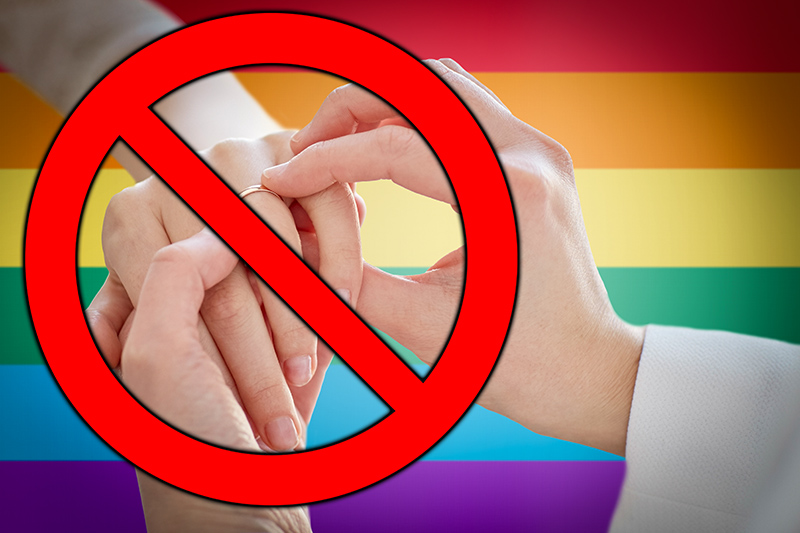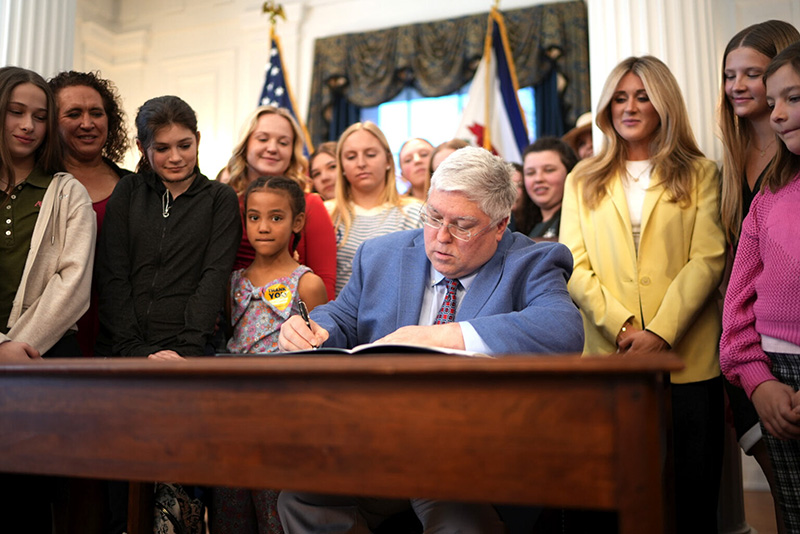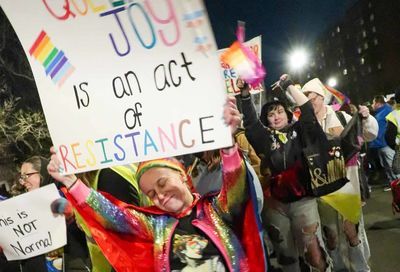Wisconsin Republicans move to protect therapists engaged in conversion therapy
Republicans say a regulatory board doesn't have the right to declare conversion therapy a form of "unprofessional conduct."

Republican lawmakers in Wisconsin have lifted proposed restrictions on therapists who perform conversion therapy, using a legislative maneuver to block a regulatory rule from taking effect for the next two years while avoiding a veto from Gov. Tony Evers (D).
On largely party-line votes, the Senate and Assembly both passed a bill that blocks a rule from the state Department of Safety and Professional Standards that would have prohibited conversion therapy.
The rule was developed by the Marriage and Family Therapy, Professional Counseling, and Social Work Examining Board within DSPS last year, and would have labeled conversion therapy a form of “unprofessional conduct.”
In its write-up of the rule, the MPSW board noted that the overwhelming consensus among medical and mental health professionals is that homosexuality, gender nonconformity, and gender dysphoria are not mental health disorders, and rejected comments provided by the public seeking to case conversion therapy as an acceptable practice.
The board also rejected suggestions to limit the scope of the regulation to therapists who practice on children.
“Neither the client’s age nor whether the client is paying for the service are relevant,” the board wrote. “It is unprofessional to attempt to treat mental health disorders that do not exist, especially with ineffective or potentially harmful treatments.”
The board also dispelled a talking point advanced by proponents of conversion therapy that banning conversion therapy will gag mental health practitioners from counseling clients about their feelings regarding their sexual orientation or gender identity.
“A counselor will still…have the ability to provide support to a client undergoing a gender transition and assistance in identity exploration or development, so long as the purpose of the counseling is not an attempt to change the client’s sexual orientation or gender identity,” they wrote.
But Republicans in the state legislature were incensed at the concept of banning conversion therapy, with the Rules Committee introducing a bill in January to block the rule from taking effect.
On Tuesday, the House and Senate voted to place the bill in committee, a legislative maneuver that blocks the DSPS rule for the remainder of the current two-year legislative session, until the January after the midterm elections in 2022, according to The Associated Press.
LGBTQ advocates have long maintained that conversion therapy is harmful to those subjected to it, especially as children.
A 2019 study, published in JAMA Psychiatry, a monthly peer-reviewed journal published by the American Medical Association, found that transgender adults who had undergone conversion therapy at any point during their lifetimes were twice as likely to have attempted suicide than those not subjected to conversion therapy, with those subjected as children being four times more likely to have attempted suicide.
Advocates have also said there is little evidence to support claims that conversion therapy can successfully “change” a person’s orientation or identity.
See also: Federal appeals court says “ex-gay” pastor can’t sue Vimeo for taking down conversion therapy videos
While the House voted to place the bill in committee without debate, the Senate debate was much more lively, with Sen. Tim Carpenter (D-Milwaukee), who is openly gay, alleging that blocking the rule from taking effect will allow therapists to “torture” LGBTQ youth.
“It doesn’t work,” Carpenter said. “It’s a sham. It’s a political talking point to make some people feel good… How long do we have to wait to say conversion therapy is wrong?”
But Mike Mikalsen, an aide to Sen. Steve Nass, co-chair of the Rules Committee, told The AP that the bill isn’t about the merits of conversion therapy.
Rather, he argued, the DSPS rule should be blocked because its board lacks the authority to ban conversion therapy without the consent of the legislature — a seeming impossibility as long as the legislature remains in Republican hands.
As such, therapists should not be penalized for “unprofessional conduct” for violating a rule approved by bureaucrats and regulators, as opposed to their elected representatives.
“The issue is until the Legislature adds that as a prohibited practice [in statute], someone should not lose their license for doing that,” Mikalsen said.
Read more:
Arkansas becomes first state to ban health care for trans youth
Selena Gomez credits gay people with helping launch her music career
Two sons criticized their dad for anti-LGBTQ comments. He stabbed them.
Support Metro Weekly’s Journalism
These are challenging times for news organizations. And yet it’s crucial we stay active and provide vital resources and information to both our local readers and the world. So won’t you please take a moment and consider supporting Metro Weekly with a membership? For as little as $5 a month, you can help ensure Metro Weekly magazine and MetroWeekly.com remain free, viable resources as we provide the best, most diverse, culturally-resonant LGBTQ coverage in both the D.C. region and around the world. Memberships come with exclusive perks and discounts, your own personal digital delivery of each week’s magazine (and an archive), access to our Member's Lounge when it launches this fall, and exclusive members-only items like Metro Weekly Membership Mugs and Tote Bags! Check out all our membership levels here and please join us today!

























You must be logged in to post a comment.